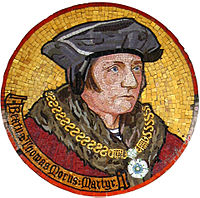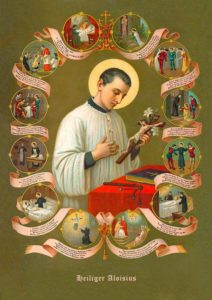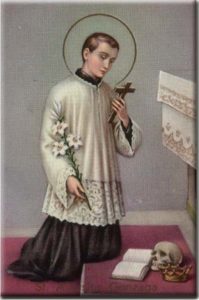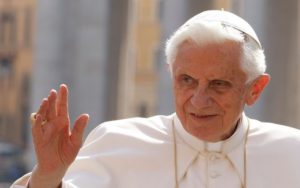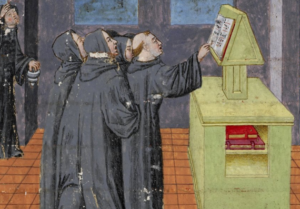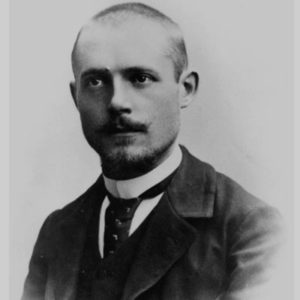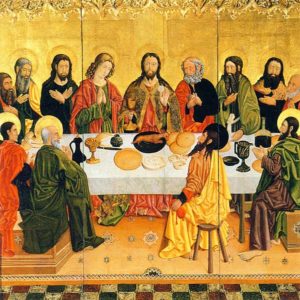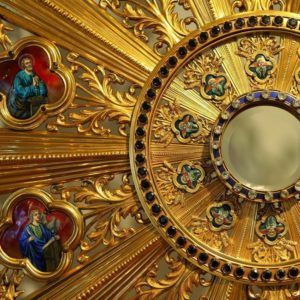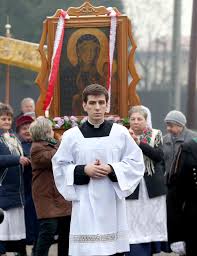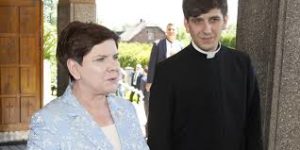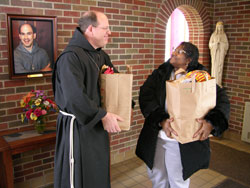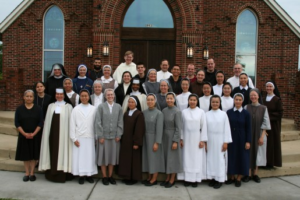 In the history of monasticism, Saint Romuald and the Camaldolese appear as a bridge between the Desert Fathers’ eremitic tradition and the Benedictine monastic way of life. A precursor to the Carthusians, Romuald battled abuses and laxity in the Church, reforming existing monasteries and establishing new ones faithful to the Rule of St. Benedict. A biographer deemed him “the solitary to the solitaries,” yet he was an incessant traveler, spurred on by the intense desire to bring souls to Christ.
In the history of monasticism, Saint Romuald and the Camaldolese appear as a bridge between the Desert Fathers’ eremitic tradition and the Benedictine monastic way of life. A precursor to the Carthusians, Romuald battled abuses and laxity in the Church, reforming existing monasteries and establishing new ones faithful to the Rule of St. Benedict. A biographer deemed him “the solitary to the solitaries,” yet he was an incessant traveler, spurred on by the intense desire to bring souls to Christ.
Romuald was born to a noble family around the year 952 in Ravenna, Italy. The few facts we know about his life come from two principle sources: The Life of the Five Hermit Brothers by St. Bruno of Querfort and The Life of Blessed Romuald by St. Peter Damian (1007-1072). Peter Damian, too, founded and reformed many monasteries in the Romualdian tradition.
The abuses in the Church at the time were deep-rooted. When men could purchase or sell positions or spiritual goods in the Church (the sin of simony, cf. Acts 8:9-24), it is not surprising that sexual mores among the clergy also became lax. During his youth, Romuald too “felt drawn to the carnal sins popular in his day.” Yet, he was also drawn to solitude and was sincere in trying to amend his ways. Romuald’s monastic life began when his father Serge killed a distant relative in a duel over a land dispute. Romuald fled to the monastery of St. Apollinaris in Classe to do forty days’ penance for his father’s sin. There he was enkindled with the “fire of divine love” and asked for the monastic habit.
Romuald, who lived with the monks for three years, “perceived that some of the monks were living in laxity, walking along the broad way, while he was not allowed to take the narrow as his heart was urging him.” They took offense at his attempts to draw their attention to the Rule and plotted to kill him, though Romuald successfully avoided the trap. He received permission to live near Venice under the spiritual leadership of a venerable hermit named Marino. Romuald was almost illiterate and when he was unable to sing the psalms, suffered raps on the head from Marino who admired his forbearance.
Through the Doge of Venice, Romuald and Marino were introduced to an abbot who was returning to his monastery in southern France. The two solitaries and others joined the abbot on his journey home where they began to live an eremitical life in the woods near the monastery. Soon the disciple became the master. Romuald “grew wondrously in virtue and surpassed the others on the journey of monastic life.” An elder monk later said of him, “This Romuald, the greatest in our times, lives sublime realities with great humility, not out of his own presumption but according to the Conferences of the hermit fathers, and taught us the right way.” Romuald’s regimen was severe. He once fasted for fifteen years, eating substantial meals only occasionally.
Romuald eventually returned home to help his father persevere in a monastic vocation. This was the start of a lifelong whirlwind of travel punctuated by long periods of solitude. He befriended the Holy Roman Emperor, Otto III, who became his devoted follower. Otto forced him to become abbot of his old monastery, St. Apollinaris in Classe, where the monks proved to be as obstinate as ever. After fruitless efforts at reform and “seeing that he now had less quiet and purity,” Romuald dramatically threw down his abbatial staff and went to Monte Cassino, the home of the Benedictines. During a grave illness, he was nursed to health by a fervent young disciple named Benedict.
After building a monastery in Pereo near Ravenna, Romuald was persuaded by St. Bruno of Querfort to promote an evangelization mission to the Slavs. From this endeavor came a “threefold good: a nice cenobium for those newly come from the world, golden solitude for mature members thirsting for the living God, and the preaching of the Gospel to the pagans for those eager to depart and be with Christ (martyrdom).” This became the model for the later foundation at Camaldoli.
The scattering of Romuald’s disciples resulted from the collapse of the foundation at Pereo that some unfairly blamed on Romuald. In truth, though he founded many foundations, Romuald “thought of himself more as an abbot of souls than of bodies.” He had a “propensity to do the opposite of what people wanted, respecting himself and preserving his own virtuousness while succeeding in having others scorn, insult and defame him.”
Romuald moved to Istria (Dalmatia) where he lived in solitude for several years. Over time, he received the spiritual gifts of prophecy, tears, and the profound knowledge of Scripture. He preferred to celebrate Mass in private because he could not contain his emotions. When he learned that Bruno and Benedict had been martyred, he went to central Europe with a “tremendous desire to shed his own blood for Christ.” Illness forced him to turn back in Germany though there were many conversions.
Though Romuald desired this martyrdom of blood, the real life and death battle was fought in the monastic cell. Here the devil and his temptations were confronted. Here the riches of the world, the battles that lay ahead, and his life of “petty, worthless activity” were presented to entice and discourage him. One night, a brother heard him say, “They have cast you down from heaven; what are you looking for in a hermitage? Go away filthy dog; clear off, you old snake!”
Whenever Romuald encountered monks resistant to reform, he “left in search of earth apt for bearing the fruit of souls.” One place was Val di Castro where he built a hermitage for his followers and a monastery for women. Here, “the blessed man was like one of the seraphim, divine fire beyond any comparison burned within him, and wherever he went he lit the torches of others with his holy preaching.” He also reprimanded secular priests and bishops who had purchased their offices through simony. So entrenched were abuses that Peter Damian wrote, “It is doubtful that the saint during his entire lifetime could really convert a bishop!”
Romuald’s reform embodied rigorous fasting, solitude and silence yet also brotherly love in community. His gift to the Church was to provide hermits with a structured, semi-eremitic life under a superior and a Rule. The Little Rule of Romuald, recorded by Bruno c. 1006, begins: “Sit in the cell as in paradise. Cast all memory of the world behind you.” Use the Psalms to focus your attention. “Above all, place yourself in the presence of God with fear and trembling, as one who stands in the sight of the emperor. Completely destroy yourself and sit like a little bird content with the grace of God. For unless its mother gives it something, it neither tastes anything nor has anything to eat.” The hermit’s principal ideal, aim or task, said Pope Benedict XVI, “is continual prayer (Lk 18:1), that is, constant union with God. There is no fixed time for mental prayer in the eremitic life, unlike other religious institutes, because prayer is to be unceasing, a kind of spiritual equivalent to breathing.”
A solitary once told Romuald that he was under no authority, that he alone decided what was best. Romuald told him, “If you are carrying the cross of Christ, you cannot forget the obedience of Christ. Go, then, get your abbot’s permission. Then come back and live humbly in obedience to him. Thus the building of your holy work, constructed with good will, will be built on humility and raised by the virtue of obedience.”
Peter Damian said that to be in Romuald’s presence was to feel as though you were standing before the majesty of God. The marquis of Tuscany said, “Neither the emperor nor any other mortal can frighten me equal to the terror that Romuald’s gaze gives me.” He was regularly besieged by people seeking guidance or healing. It was well known that a piece of bread blessed by him could cure the sick of mind or spirit. Nevertheless, this awe did not prevent an abbot who had purchased his office through simony from trying to strangle him.
Often, his own followers rebelled against him. One time, his monks were furious that he gave money to the needy that they wanted for themselves. They beat him with clubs and threw him out of the monastery. When a disciple who had been chastised for serious sins accused Romuald of the same, Romuald was forbidden to say Mass for six months. During his first Mass after this unjust sentence, the radiance of his face startled those present. He was inspired to write a commentary on the psalms, no longer extant, containing grammatical inaccuracies in form, but none in spirit.
At one point, he remained in solitude for seven years, “observing perpetual silence without exceptions. Still, with a silent tongue and preaching with this life, he was able to do more than ever.” His last foundation was built at Camaldoli (c. 1023), where he established a hermitage and a separate monastery to receive guests. This hermitage “from its very onset was established by our fathers as lord and master over the guesthouse.” The owner of the land told Romuald that in a dream he saw, like the prophet Jacob, men in white ascending a ladder to heaven.
When his end was near, he went back to Val di Castro, where for six months he suffered greatly from diseased lungs. He died in 1027, yet fifteen years later, people still flocked to his tomb “to see the miracles God works through him. “Now,” wrote Peter Damian, “he shines in an inexpressible way among the living stones of the heavenly Jerusalem.”
It is believed that Romuald founded or reformed nearly a hundred monasteries and hermitages during his life. Today, there are two Camaldolese branches: the Camaldolese Benedictines and the Camaldolese Hermits of Monte Corona. Founded in 1520 as a reform by Bl. Paul Giustiniani, the Monte Coronese have hermitages only. The lone hermitage in the United States is in Bloomingdale, Ohio, where the silence is not disrupted by television or the internet. Its nine solitary cells stand, in original fashion, in a semicircle about the Church, the true center of the hermitage.
In 1960, Bishop Fulton Sheen wrote: “Their silence will make atonement for vain verbiage where so many talk, but few listen; their lives as hermits will repair for those human alliances where men communize to be anti-God. And for those who always want to be ‘alone,’ these saintly men will prove that the only aloneness is being without God.”
For more information, visit camaldolese.org. The book Camaldolese Spirituality: Essential Sources by Peter-Damian Belisle contains the five ancient texts of Romualdian spirituality. Camaldolese Extraordinary by Dom Jean Leclercq and Bl. Paul Giustiniani is a detailed look at the Monte Corona founder and his spirituality.
Born: c. 952 in Ravenna, Italy
Founding of the Camaldolese Order: 1023 in Camaldoli, Italy
Died: 1027 in Val di Castro, Italy
Establishment of the Camaldolese Congregation: 1105 by Pope Paschal II
Spirituality: “Prefer nothing, absolutely nothing, to the love of Christ.”
Motto: Ego vobis, vos mihi (I am Yours, You are Mine)
Like this:
Like Loading...
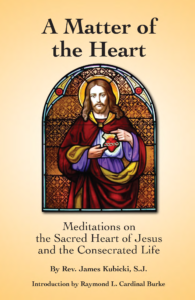 Download Free Book: A Matter of the Heart
Download Free Book: A Matter of the Heart
